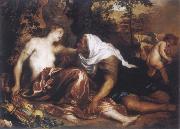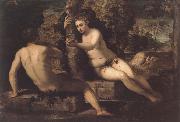Wholesale Oil Painting No Minimum |
|||||||||||
|
|
|||||||||||

|
|||||||||||
|
|
|
||||||||
Anthony Van DyckDutch 1599-1641 Anthony Van Dyck Locations Flemish painter and draughtsman, active also in Italy and England. He was the leading Flemish painter after Rubens in the first half of the 17th century and in the 18th century was often considered no less than his match. A number of van Dyck studies in oil of characterful heads were included in Rubens estate inventory in 1640, where they were distinguished neither in quality nor in purpose from those stocked by the older master. Although frustrated as a designer of tapestry and, with an almost solitary exception, as a deviser of palatial decoration, van Dyck succeeded brilliantly as an etcher. He was also skilled at organizing reproductive engravers in Antwerp to publish his works, in particular The Iconography (c. 1632-44), comprising scores of contemporary etched and engraved portraits, eventually numbering 100, by which election he revived the Renaissance tradition of promoting images of uomini illustri. His fame as a portrait painter in the cities of the southern Netherlands, as well as in London, Genoa, Rome and Palermo, has never been outshone; and from at least the early 18th century his full-length portraits were especially prized in Genoese, British and Flemish houses, where they were appreciated as much for their own sake as for the identities and families of the sitters. |
||||||||
|
|
||||||||
The funf senses with landscape
The funf senses with landscape Painting ID:: 45591 |
mk186
1638 Strabburg, muse of the Beaux-type mk186 1638 Strabburg, muse of the Beaux-type |
|||||||
|
|
||||||||
TintorettoItalian Mannerist Painter, ca.1518-1594 His father was a silk dyer (tintore); hence the nickname Tintoretto ("Little Dyer"). His early influences include Michelangelo and Titian. In Christ and the Adulteress (c. 1545) figures are set in vast spaces in fanciful perspectives, in distinctly Mannerist style. In 1548 he became the centre of attention of artists and literary men in Venice with his St. Mark Freeing the Slave, so rich in structural elements of post-Michelangelo Roman art that it is surprising to learn that he had never visited Rome. By 1555 he was a famous and sought-after painter, with a style marked by quickness of execution, great vivacity of colour, a predilection for variegated perspective, and a dynamic conception of space. In his most important undertaking, the decoration of Venice's Scuola Grande di San Rocco (1564 C 88), he exhibited his passionate style and profound religious faith. His technique and vision were wholly personal and constantly evolving. |
||||||||
|
|
||||||||
|
|
The funf senses with landscape
The funf senses with landscape Painting ID:: 45595 |
mk186
around 150 Venice, Gallerie Dell' Accademia mk186 around 150 Venice, Gallerie Dell' Accademia |
||||||
|
|
||||||||
|
Tintoretto Italian Mannerist Painter, ca.1518-1594 His father was a silk dyer (tintore); hence the nickname Tintoretto ("Little Dyer"). His early influences include Michelangelo and Titian. In Christ and the Adulteress (c. 1545) figures are set in vast spaces in fanciful perspectives, in distinctly Mannerist style. In 1548 he became the centre of attention of artists and literary men in Venice with his St. Mark Freeing the Slave, so rich in structural elements of post-Michelangelo Roman art that it is surprising to learn that he had never visited Rome. By 1555 he was a famous and sought-after painter, with a style marked by quickness of execution, great vivacity of colour, a predilection for variegated perspective, and a dynamic conception of space. In his most important undertaking, the decoration of Venice's Scuola Grande di San Rocco (1564 C 88), he exhibited his passionate style and profound religious faith. His technique and vision were wholly personal and constantly evolving. The funf senses with landscape mk186 around 150 Venice, Gallerie Dell' Accademia |
||||||||
|
|
||||||||
|
Prev Next
|
||||||||
|
|
||||||||
|
Related Paintings to Tintoretto :. |
||||||||
|
|
||||||||
|
CONTACT US |


